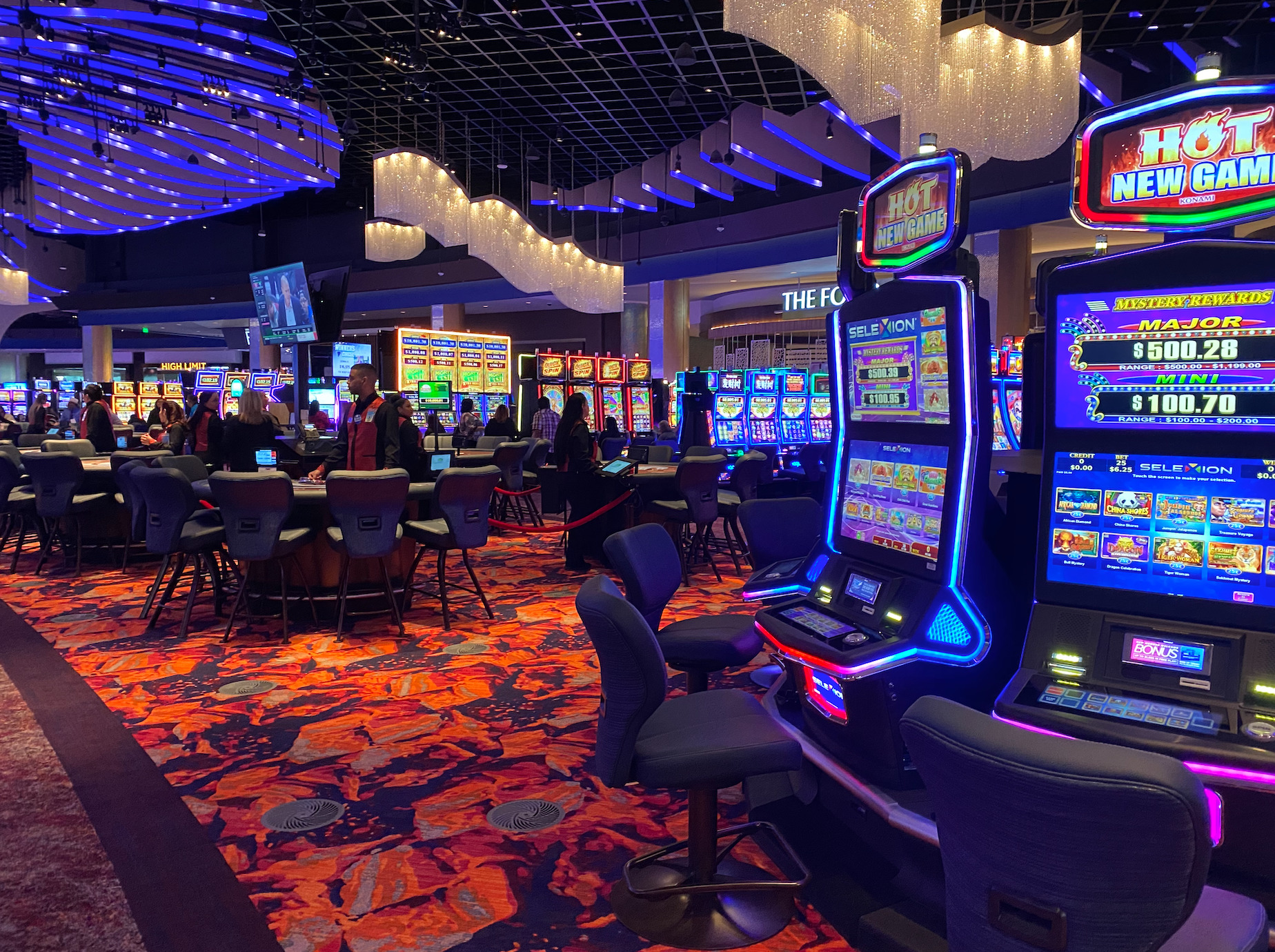
Casino entertainment have long been a engaging form of entertainment, drawing numerous of players from varied cultures around the globe. From the opulent casinos of the Strip to the thriving gambling halls of the Chinese gambling capital, these games serve as a link that unites people across a variety of backgrounds. The allure of luck, skill, and risk entices not only those looking to win money but also those looking for a feeling of belonging.
The significance of casino games extends well beyond the gaming floor. They often embody the cultural standards and principles of the communities in which they prosper. Games such as poker, 21, and the spinning wheel have integrated into the fabric of cultural phenomena, influencing various aspects from movies to fashion. As we explore this captivating intersection of chance and life, we can better understand how these games shape and are shaped by the environment surrounding us. depo 288
Historical Evolution of Gambling Games
The origins of gambling games can be tracked back to ancient civilizations, where betting in different forms was extensively practiced. In the East, around 2300 B.C., a type of lottery known as Keno was well-known, while in old Rome, soldiers would often gamble on the outcomes of their contests. The concept of using randomness for amusement and income developed over the centuries, leading to the establishment of more structured activities. By the late Middle Ages, gambling houses initiated to surface in European nations, especially in the Italian peninsula, which introduced early versions of well-liked activities still practiced today.
As betting increased recognition in European regions, the 17th and 18th centuries saw the emergence of casinos as specialized establishments for betting. The initial official gaming venue, the Ridotto, was established in the city of Venice in 1638, providing activities like Baccarat and Faro. This era marked a major shifting point, as gaming venues started to welcome not just the wealthy but also the burgeoning middle-income class. The refinement of games increased, leading to the creation of new regulations and variations that enhanced the play experience.
In the 19th century, the era of industrialization and changes in social conventions further altered the terrain of gaming activities. The launch of roulette and new one-armed bandits attracted a larger clientele, and gambling establishments became seen as legitimate forms of fun. This time witnessed the worldwide proliferation of casino activities, as gambling houses extended from European nations to the Western Hemisphere, culminating in the establishment of the legendary Strip of Las Vegas in the 20th century. The progress of casino activities has progressed into the current era, incorporating new technologies and digital services, rendering them open to a worldwide audience.
## Cultural Significance across Various Societies
Casino games have profound cultural and social significance across numerous cultures around the planet. In Las Vegas, the very core of the city is woven around gambling establishments, where gaming is not just a hobby but a fundamental aspect of entertainment and community interaction. The dazzling lights and dynamic atmosphere attract millions, showcasing how gambling activities can impact local economies and cultural uniqueness. This surrounding transforms the notion of relaxation into an immersive encounter that affects style, sound, and even film.
Conversely, some communities treat betting with more caution, seeing it through the lens of morality and tradition. A case in point, in numerous Asian communities, games like Mahjongg and Pai Gow Gambling are full of history and have significant social relevance. These games are often played during get-togethers and occasions, fostering collective connections and reinforcing kinship ties. The act of participating in these games goes above mere entertainment, reflecting ethics such as honoring elders and the value of shared enjoyment.
Simultaneously, in Western countries such as Monte Carlo and Italy, games of chance serve as symbols of opulence and elegance. The elegant atmosphere of these locations attracts both visitors and residents, maintaining a sense of prestige and elitism. The art of poker and the strategic features of games like baccarat are celebrated, molding social dynamics and creating an appeal that enthralls a heterogeneous audience. This highlights how gambling can both reflect and mold cultural attitudes towards risk, benefit, and social interaction.
Financial Influence and Tourism
Casino games play a crucial role in the economic landscape of many areas, particularly those that rely heavily on tourism. The revenue produced from casino operations fuels local economies, creating employment opportunities not only within the casinos themselves but also in connected industries such as hotel management, dining, and entertainment. This surge of tourists, drawn by the attraction of gambling and the overall gaming environment, stimulates spending across multiple local enterprises, contributing to the economic health of the region.
The presence of casinos often leads to the construction of infrastructure, including lodging, public transit, and recreational facilities. These developments are essential in enhancing the overall tourist experience, making destinations more attractive to visitors. Additionally, many casinos contribute in local communities through support of events and philanthropic initiatives, further embedding themselves into the community structure of the locality. Such contribution not only supports economic growth but also fosters a positive reputation of the casino industry.
In addition, the global popularity of casino games drives competitive tourism, with regions vying to attract gamblers from around the world. Iconic destinations like Las Vegas and Macau have become synonymous with casino culture, drawing millions each year. This competitive edge encourages innovation and diversification within the gambling sector, influencing developments in leisure and hospitality that resonate beyond their borders. The ripple effects of this tourism extend wide, impacting local financial health and cultural interactions on a global scale.
